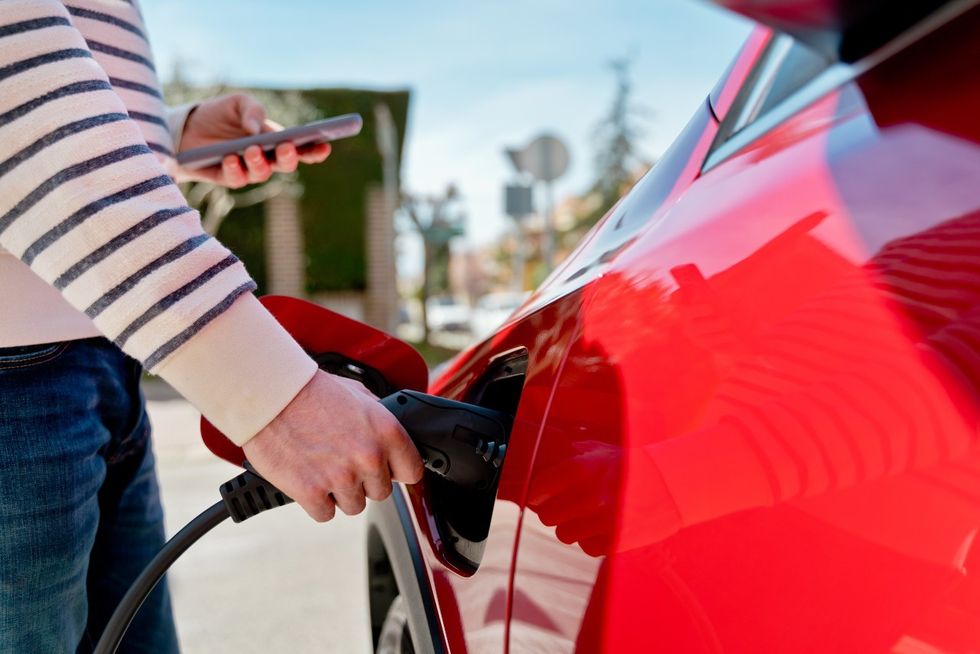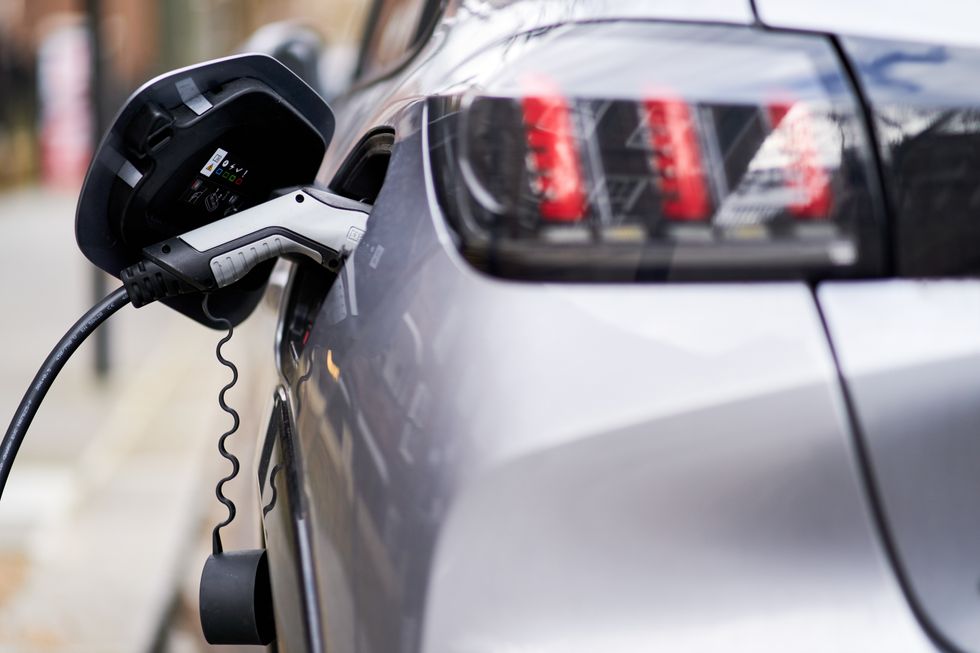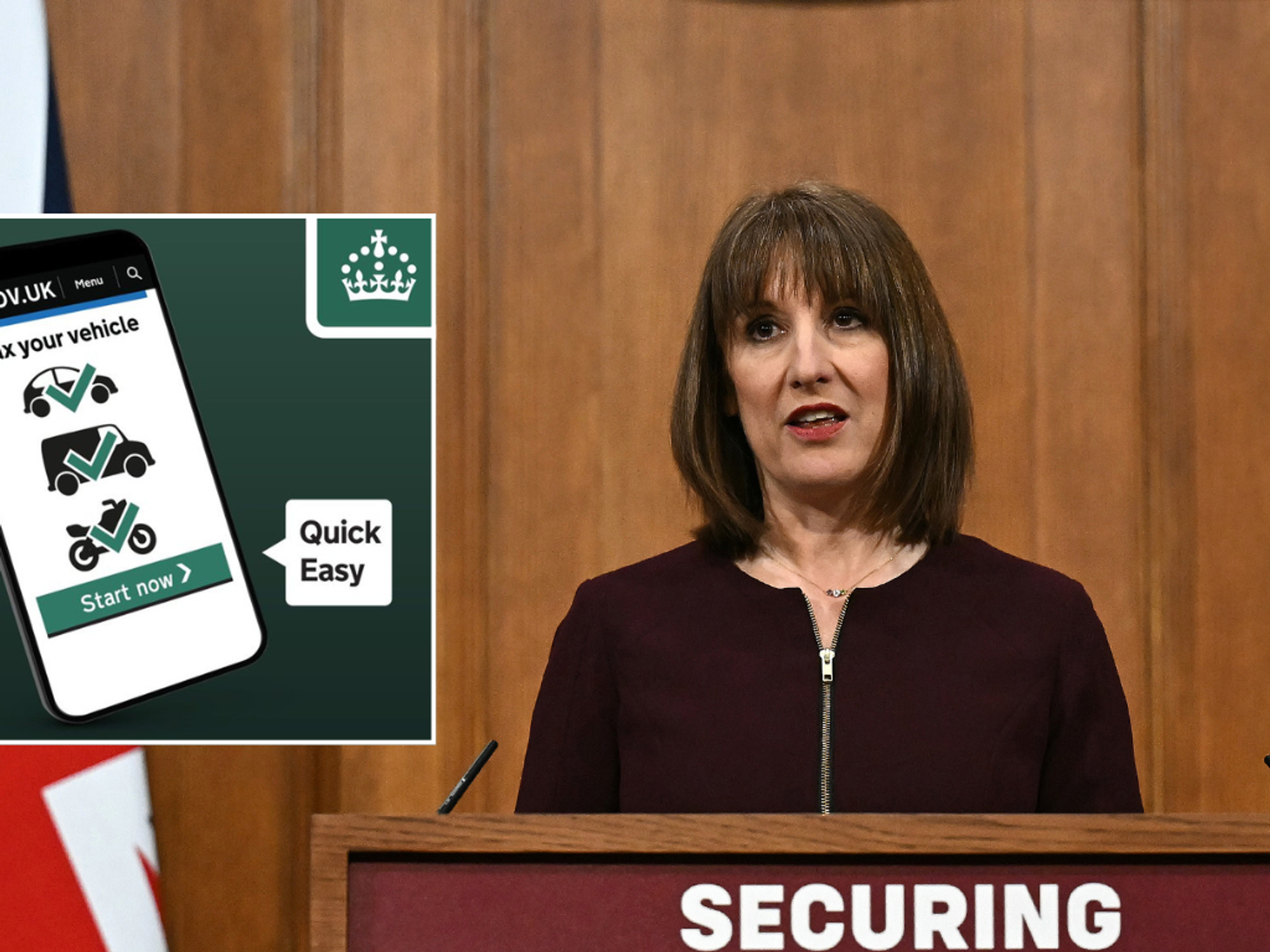Drivers in London saw prices of 75p per kWh when charging in public
Don't Miss
Most Read
Trending on GB News
Charging an electric vehicle at home could be 20 times cheaper for drivers than using public charging points.
Data found that the average cost of charging at home works out to 28p per kWh, whereas public charging sets drivers back an average of 70p per kWh.
Typically a 70kWh battery would cost £19.60 to fully charge at home at the average cost of 28p per kWh while charging at a public station could set drivers back nearly £50.
During the period between October and December last year, research showed the highest costs for charging at a public station were £1.20, while the lowest was 17p.
Do you have a story you'd like to share? Get in touch by emailingmotoring@gbnews.uk

A 70kWh battery would cost £19.60 to fully charge at home
GETTY
As for home charging, data recorded the highest price during the period saw drivers pay as much as 50p and as low as 4p.
Ashley Tate, managing director at Allstar Chargepass UK, said: “As an industry, we are collectively migrating to alternative power for vehicles which is a huge moment in the history of mobility.
“With that comes plenty of questions around the various running costs, so we’ve harnessed our proprietary data to provide clear insights and help drivers get a better understanding of real-life costs of electric vehicle charging, petrol and diesel.
“For those that are opting for EVs, our inaugural edition has shown the clear cost benefits of charging at home.”
Looking at charging prices by region, Bristol was the only urban centre that in the top 10 most expensive locations for public charging, costing drivers 78p, while neighbouring regions like Herefordshire and Worcestershire were both costing 79p.
Notably, prices in Scotland were also expensive with Renfrewshire, Inverness and East Ayrshire costing 79p to charge an EV.
In southern England, Cornwall came in at 65p for public charging while the Isle of Wight was the cheapest at 57p.
Drivers in the capital, meanwhile, paid average prices of 75p per kWh for public charging.
Tate added: “While we understand that [charging at home] isn’t an option available for everyone, where possible drivers could make significant savings by charging at home compared to those using public charge points.
“We’ve provided the pence-per-mile figures of cars and vans in the report based on our real-life electric and fuel costs so that businesses and fleets can see our estimated indicative costs of various cars and vans models, however they choose to power them.
“We’ll keep a close eye on these figures and keep reporting on the latest trends."
At the end of January 2024, there were 55,301 electric vehicle charging points across the UK, across 31,445 charging locations.
LATEST DEVELOPMENTS:
- Driving law changes urgently needed to make mobile phone use as 'socially unacceptable as drink-driving'
- Older drivers more likely to get slapped with speeding fines as 101-year-old handed ticket for breaking limit
- Hydrogen charger used for electric cars trialled by Ministry of Defence to 'increase resiliency on bases'

There are 55,301 electric vehicle charging points across the UK, as of January 2024
PA
While the cost of charging has increased, so has the price of petrol. It has continued to increase across the UK with supermarkets and major retailers also raising costs.
Drivers can find a staggering 14p difference between supermarkets’ cheapest and most expensive prices.









